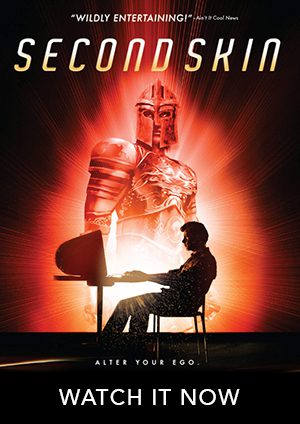John August, who runs the best screenwriting blog out there, had a great post the other day about a graduation speech he gave. I think this is sound advice, and actually pertinent to where all of us creative types are headed. I copy/pasted it, but you should check the man’s site out here.
Be Like MacGuyver
John August
The traditional function of a graduation speaker is to congratulate you on your accomplishment and challenge you to do your best work in the years ahead. So let me do that. Congratulations, you’re done! Now, go out and do your best work in the years ahead!
Now that that’s done, I want to talk for a few minutes about what the hell you’ve gotten yourself into. I mean, a film degree. Now? In this economy? A lot of you have friends and family in the audience, and I know they’re really happy for you. But secretly, they’re thinking, Jesus.
So what I’m going to say is as much for them as it is for you.
We call this “film school,” but really, that’s only for lack of a better term. You don’t really shoot much film. You don’t dip it in chemicals. You rarely touch it. Rather, what you do in a school like this is learn how to tell stories with words, pictures and sound.
And quite luckily, that’s what the world needs. Two examples.
(more after the jump)
A friend of mine writes for a major newspaper. And when she was done covering the presidential election, her bosses handed her a videocamera and told her that every piece she delivered now had to include a video component for the website. She needed to be able to shoot it, edit it and deliver it.
Another friend writes for a major magazine. In addition to her story assignments, she’s now required to come up with web features, like little Flash slideshows that can be easily monetized. She also finds herself suddenly on-camera, hosting arrivals at movie premieres, and dealing with all the requisite technical stuff.
There’s not a word for the kind of school that teaches you how to do all this. But the word that’s missing is probably a lot like film school. They send you out of here not to be a specialist, a cardiothoracic surgeon, but rather to be a generalist, a media McGuyver.
You may think you’re going to be a screenwriter, a director or an editor, but the odds are you’ll be all of those things on different projects at different times.
The one thing you won’t be is an amateur. I want you to banish that word, because you need to treat everything you do from the moment you walk out the door as a professional. This is now your job.
That means doing your best work at all times, even when it doesn’t seem to matter. You may feel like you’re not getting graded. You are. It’s just that no one is telling you what score you got.
And let’s talk about your classmates. You probably have some good friends and some people you kind of hope to never see again. While you were in the program here, you had to rely on them. Your professors put you in teams. You got along, you fought, whatever. That doesn’t stop. No one makes a movie by himself. So if by next weekend, you’re not reading one of their scripts, or helping on something they’re shooting, something’s wrong. Trust me that five years from now, the most successful person in this class will be the one who worked the hardest for other people.
My last piece of advice is probably the one most likely to induce insomnia. Every night when you go to bed, ask yourself: What did you do today to get closer to your goals? That’s a hard question to ask. Feel free to beat yourself up, because no one else will anymore. That’s the best and worst thing about graduating — it’s the end of the systematic evaluation of your progress.
You need to stop wondering what you’re going to do, and focus on what you’re going to do next. Starting now. Congratulations, and good luck.





